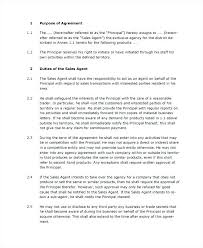Today’s guest post is by Christopher
Elliott, author of “How
To Be The World’s Smartest Traveler” (National Geographic). This column
originally appeared in the Washington Post.
Before you embark on your summer vacation, take a few minutes to read the fine print on your airline ticket, car rental contract, vacation rental contract — or any other contract the travel industry pushes in front of you.
 |
| Cruising to Alaska is a great summer vacation. |
It’s no exaggeration to say that many, if not most, travel problems start with a failure to read the terms and conditions. After years of advocating travel cases, I think I know the reason for the fine-print illiteracy. No one even knows where to find the fine print, let alone how to make sense of it. It’s so frustrating that travelers, and at least one travel insurance company, are doing something about it.
“Travelers inevitably
encounter fine print,” says Karina Saranovic, a lawyer with the firm Delman
Vukmanovic in Los Angeles. “The mile stretch of ink at the bottom of agreements
can seem intimidating.” Saranovic
remarked on how easy it is to click “accept” and finish a booking without
understanding what you’re getting.
Her advice: “Comb
through the terms with a magnifying glass, because you can’t always predict
what you’ll find.”
For example:
 |
| You want to fly on time! |
• Airline contracts,
also known as “contracts of carriage,” say the airline is not required to keep
its flight schedule. But you’re expected to check in on time. Otherwise, the
airline will cancel your ticket and keep your money.
• Car rental agreements
stipulate that if you damage a vehicle, you owe the company for repairs, plus
“loss of use” — or what the car rental company would have earned had the car
not been in the shop.
 |
| Car rental agreements vary widely, so know what you are getting. |
• Cruise contracts say
the staff may search your cabin for any reason at any time. The cruise line can
also use your image for any purpose without compensation.
“While it’s a good idea to read the entire contract, you’d be forgiven if you don’t,” says Tanner Callais, the founder of Cruzely.com, a cruise site. “After all, if you want to cruise, then you have to agree to their terms.”
It’s that way for
virtually all travel purchases. The agreement, known as an “adhesion” contract,
is a take-it-or-leave-it proposition. If you don’t click “accept,” you’re not
traveling.
 |
| Check for extra fees with hotel stays. |
So how do you read the
contract? And what do you do when you find something objectionable?
Knowing that there is a
contract is the first step. And even if they are aware of it, they have no idea
how to find it.
Sometimes, knowing the
terminology is useful. An airline contract, for example, can be called a
“contract of carriage” or “conditions of carriage,” depending on the company.
Hotels are a little trickier. Technically, your reservation is your contract,
although you may find additional terms and conditions on the hotel site.
Knowing the lingo can help you quickly find the contract when you’re doing your
due diligence.
Once you’ve found the
contract, experts say you should take your time reviewing it. Contracts
typically outline deadlines for cancellation refunds, rescheduling or
promotional qualifications. If you’re buying travel insurance, you should read
the contract twice. Travel insurance policies are written in gibberish. Even if
you think you understand what you’ve read, you might want to read it again.
Almost every contract
you read will be one-sided and nonnegotiable. Which is to say, you can’t ask
the airline or hotel for a revision — it doesn’t work that way. If you press
the “book” button, you agree to the terms. (Oh, and the terms can change at any
time, for any reason, to which you also agree.)
 |
| Reading the fine print takes time and persistence. |
But you can say no, and
if you don’t like what you read, you should say no. This is particularly true
when buying products for which you have many options, such as travel insurance
or vacation rentals. If your policy doesn’t look right, walk away.
For some travel
companies, the fine print is part of the business model. As they teach you in
consumer advocacy school, the large print giveth and the small print taketh
away. (Tom Waits sang about it, too.) Simply put, travel companies make more
money when they slip a term into the fine print that makes your airfare
nonrefundable or add a mandatory tip to your cruise ticket.
But some travel
businesses — the ones caught between the consumers and the companies — are
tired of the confusion. So earlier this year, the travel insurance website
Squaremouth.com decided to do something about it. The company inserted a
notification at the end of its contracts, giving $10,000 to the first person to
read to the end.
Squaremouth estimates
that fewer than 1 percent of travelers who buy travel insurance read all of
their policy information. “We’re working to change that,” Squaremouth CEO Chris
Harvey told me.
Harvey expected the
contest to last a year. But Donna Andrews, a high school teacher from
Thomaston, Ga., discovered the contest in less than 24 hours and won. I asked
her why, and she said it was a habit. A self-described “nerd” who keeps a file
with all of her contracts, she says she’s done that since studying consumer
economics at the University of Georgia.
“I always fully read
contracts before signing to ensure I know what is covered and what is not,” she
adds.
Maybe there’s a lesson
in there for the rest of us. “Gotchas” infest virtually all travel contracts.
If you don’t want to get ripped off, you have to follow Andrews’ example. Make
a habit of reading the entire contract — unless you like surprises.
No comments:
Post a Comment